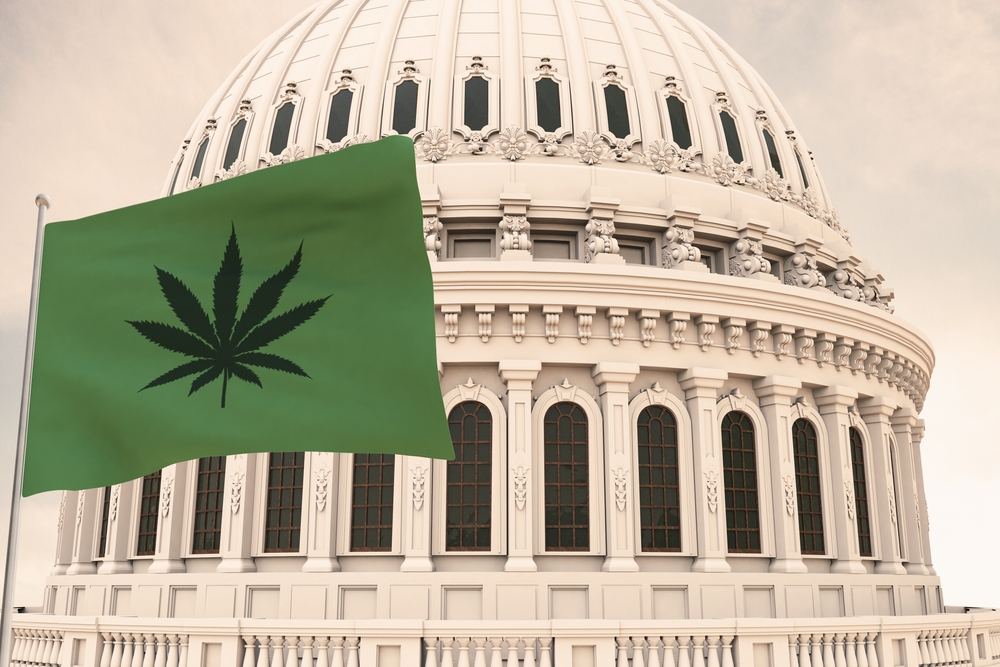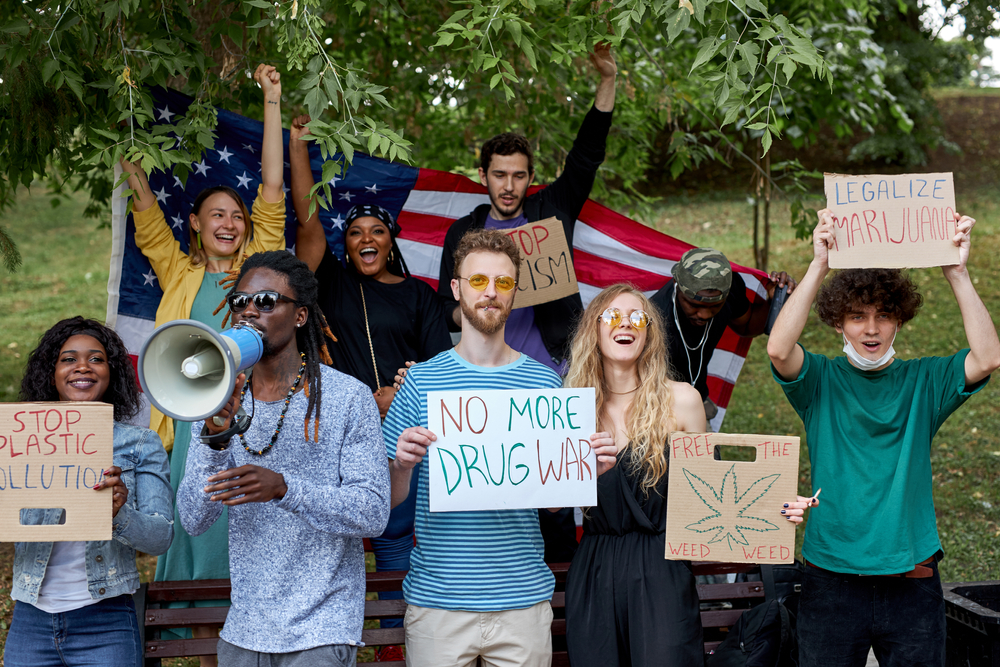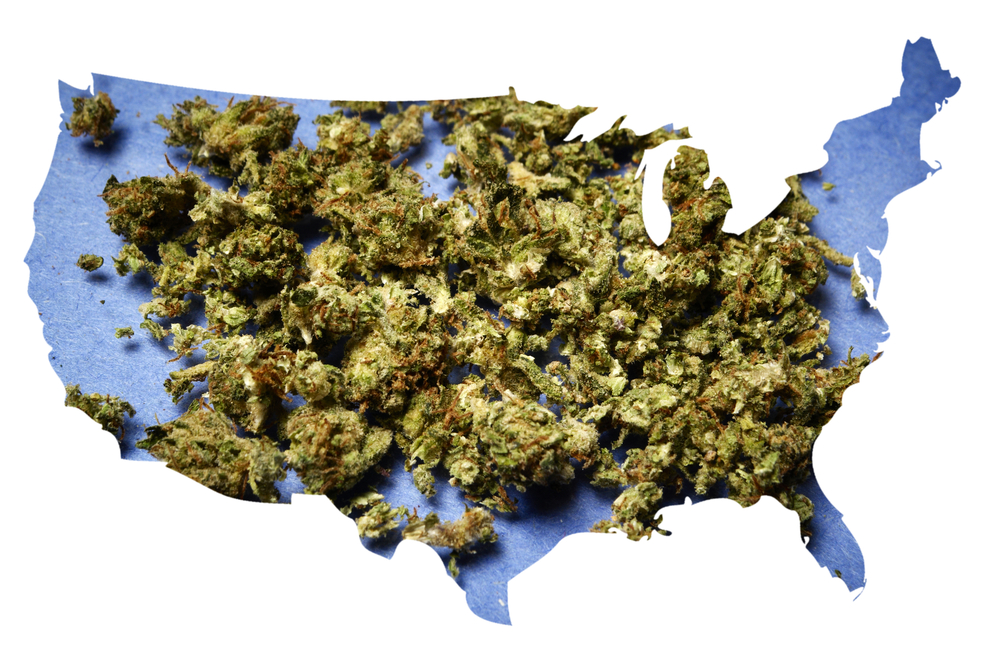Federal Administration Begins Marijuana Clemency
By MK Thomson
May 3 2023
Federal marijuana legalization in the US has been a hotly debated topic for decades, to say the least. But on the state level, legalization is far less controversial. As MJ historians know, California became the first state to legalize medical marijuana in 1996, followed by a swath of other states in the following years, and Missouri in 2018.
In 2012, Colorado and Washington became the first states to legalize adult-use or recreational marijuana, sparking a wave of state-level legalization efforts. Today, 36 states and the District of Columbia have legalized medical marijuana, and 15 states and the District of Columbia have legalized recreational use – including Missouri’s passing of Amendment 3 in late 2022.
Although many US states have legalized marijuana, technically it remains illegal at the federal level. This creates significant challenges for marijuana-related businesses, especially for banking and tax matters. To address these concerns, the US government has proposed several initiatives including:
Despite these initiatives, none of these bills have been passed into law, and the federal government continues to classify marijuana as an illicit addictive drug (Schedule 1, along with heroin).

And the latest from the federal government was in October 2022, when President Biden announced a pardon for thousands of people who have been convicted of marijuana possession under federal law. This move followed President Biden’s commitment to addressing racial disparities in the criminal justice system and rectifying the harms caused by the (disastrous) War on Drugs.
In March 2023, the Justice Department made an announcement that they were accepting pardon requests from individuals who have been convicted of possessing marijuana. This move is a major stride towards remedying the injustices that have emerged as a result of the prohibition of marijuana. The move towards decriminalization is significant because it could help to address some of the injustices that have arisen from the criminalization of marijuana. Studies have shown that people of color are disproportionately affected by marijuana-related arrests and convictions. And this step in particular would make it easier for those with federal marijuana convictions on their records to get jobs, housing, credit, and the like.

The clemency initiative is focused on low-level, nonviolent drug offenders with clean records since their convictions. Eligible individuals can apply for clemency through the Department of Justice’s Office of the Pardon Attorney, and applications will be reviewed on a case-by-case basis. Currently, no one is being imprisoned for marijuana-related charges, but there are upwards of 6,500 people who have criminal records who can benefit from this new policy.
To be eligible for clemency under the Department of Justice’s initiative, individuals must have been convicted of a federal, nonviolent marijuana offense and have served at least 10 years of their sentence. Additionally, they must have a clean record since their conviction and no other significant criminal history. This means that individuals with multiple convictions or those who have committed violent crimes are not eligible for marijuana clemency under this initiative.
The focus on low-level, nonviolent offenders reflects a growing recognition of the disproportionate impact of drug laws on communities of color and the need to address the harm caused by these laws.
Furthermore, the clemency initiative could have broader implications for the future of drug policy in the United States. By acknowledging the harms caused by federal marijuana prohibition and providing relief to those affected by it, the Department of Justice is sending a message that drug policy should prioritize public health and harm reduction rather than punitive enforcement.
The initiative could also pave the way for more comprehensive drug policy reform, such as the decriminalization or legalization of marijuana at the federal level. With growing public support for marijuana legalization and a shift in attitudes towards drug policy, the Department of Justice’s initiative could be seen as a step towards a more compassionate and equitable approach to drug policy. However in his announcements, Biden stopped short of calling for decriminalization (and not even close to full legalization) saying that was a job for Congress. (“Great”, American tokers say in unison …)
Overall, the clemency initiative does have the potential to not only provide relief to those impacted by federal marijuana prohibition but also to shape the future of drug policy in the United States.

While the clemency initiative and potential changes to federal marijuana policy are steps in the right direction, there are still many challenges to be addressed in the fight for drug policy reform. One major obstacle is the political divide on the issue, with many conservative lawmakers continuing to oppose marijuana legalization or decriminalization despite many of their home states having passed medical, and in some cases even adult-use, marijuana laws.
Another challenge is the lack of clear and consistent regulations at the state level, which has created a patchwork of different policies and regulations across the country. This has created difficulties for businesses operating in the industry and has made it challenging for law enforcement to enforce drug laws consistently. However, this is an obstacle that could be relatively easy to overcome. The disparities between state marijuana policies are not that different, and there is likely a solid common ground that could serve at the foundation of a developing national stance on the legalization of marijuana.
Moreover, the issue of social equity and ensuring that communities that have been disproportionately impacted by drug laws benefit from the legalization and regulation of marijuana remains a challenge. Ensuring that those communities have access to the economic benefits of the industry, such as ownership and employment opportunities, is crucial for addressing the harm caused by drug laws and creating a more equitable system.

While the recent actions by the federal government regarding marijuana policy are a positive step forward, progress toward true drug policy reform has been slow. (Man, do we sound like a broken record on this topic …) The clemency initiative and potential changes to federal marijuana policy represent important progress, but more needs to be done, including the full expunging of non-violent marijuana-related criminal records and rescheduling of marijuana from Schedule 1. As is often the case with the government, change moves at a glacial pace.
However, with growing public support and momentum for drug policy reform, there is hope that we can create a fair and just system that prioritizes public health and safety over punitive enforcement. Let’s just the federal government’s – especially Congress – feet to the fire on this one.